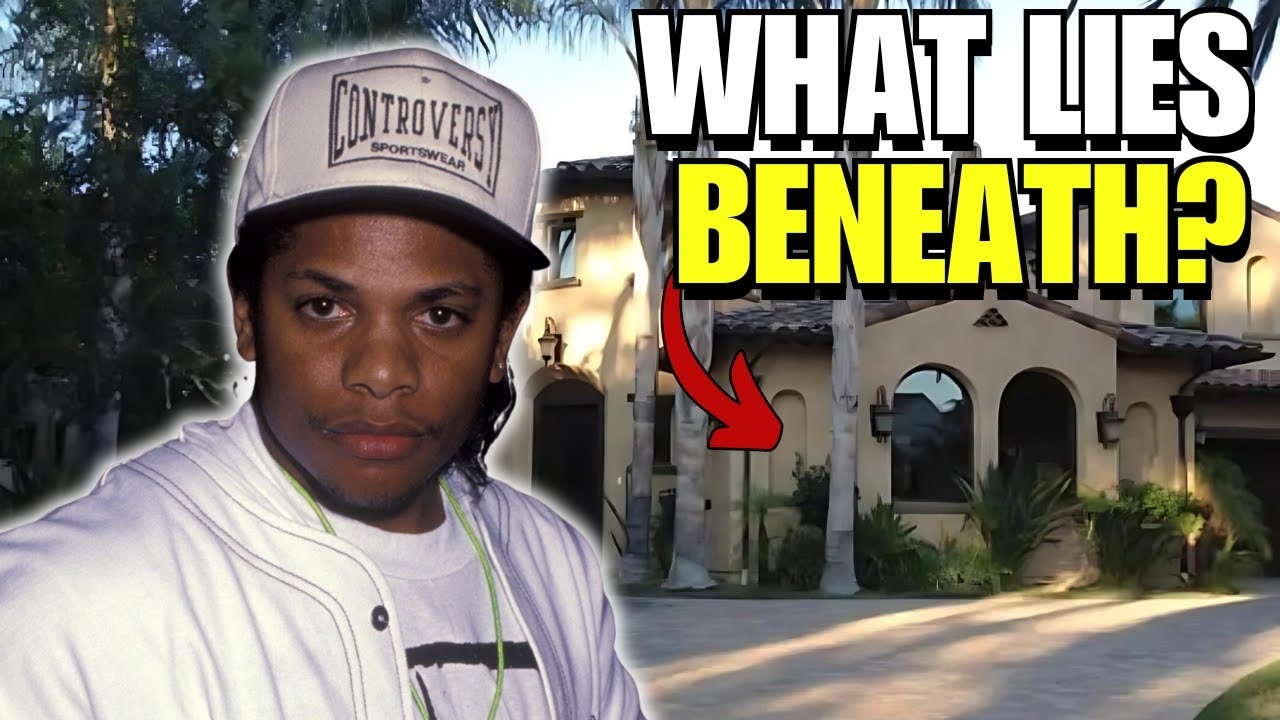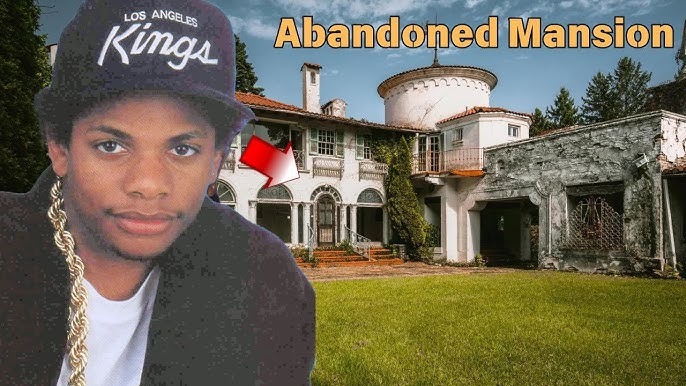**Inside Eazy-E’s Los Angeles Mansion – Family Drama, Abandoned Legacy & Tragic End**

Under the bright California sun, a once-glamorous Calabasas mansion now stands silent and empty—a faded monument to the meteoric rise and tragic fall of Eazy-E, the godfather of gangster rap. This lavish home, once a symbol of his success, now reflects the turbulence that defined his life and legacy.
Born Eric Wright in Compton, California, Eazy-E’s journey began in one of America’s toughest neighborhoods. Dropping out of high school, he hustled on the streets before a family tragedy pushed him toward music. In 1986, he co-founded Ruthless Records with Jerry Heller, launching NWA and changing the course of hip hop forever.
Their raw, unapologetic sound shocked mainstream America, and albums like “Straight Outta Compton” went double platinum, despite limited radio play.
Eazy-E’s solo career flourished with hits like “Eazy-Duz-It,” and by the early 1990s, he was more than just a rapper—he was an entrepreneur at the heart of rap’s most controversial group.
But fame brought conflict. Ice Cube left NWA over financial disputes, followed by Dr. Dre, sparking legendary rap feuds. Eazy-E’s business moves, including mentoring Bone Thugs-N-Harmony, proved his vision extended beyond performing.

At the height of his success, Eazy-E purchased a 5,700-square-foot Calabasas mansion for $1.1 million. The home, with its sweeping views and luxury features, was a world away from his Compton roots. It became the setting for family gatherings and industry meetings, underscoring his transformation from street hustler to hip hop royalty.
Yet, after Eazy-E’s sudden death in 1995 from AIDS-related complications, the mansion became embroiled in family disputes and legal battles. Without his leadership, the estate fell into disrepair and was eventually auctioned off—a haunting reminder of how quickly fortunes can fade
Financially, Eazy-E’s net worth peaked at around $35 million but dwindled to $8 million by his death, eroded by lawsuits, feuds, and extravagant spending. Despite this, Ruthless Records remained a powerhouse, and posthumous royalties continue to support his heirs.
His philanthropic side, often overlooked, included donations to organizations like Make-A-Wish and local community efforts in Compton.
Eazy-E’s personal life was equally complex. He fathered 11 children with eight women, creating a sprawling, dramatic family legacy. His widow, Tomica Woods, inherited Ruthless Records, sparking years of legal battles with other family members.

Some children, like Lil Eazy-E and Ebie Wright, have worked to preserve and reclaim their father’s legacy, while others remain embroiled in disputes.
His death at age 30 shocked the music world, forcing hip hop to confront the stigma of AIDS and inspiring advocacy for awareness. Tributes from protégés like Bone Thugs-N-Harmony and films like “Straight Outta Compton” ensure his influence endures.
Today, Eazy-E’s mansion stands as a ghostly relic—a reminder of a life marked by triumph, controversy, and tragedy. His story remains one of hip hop’s most dramatic arcs, illustrating both the promise and peril of fame, and the enduring power of legacy.

